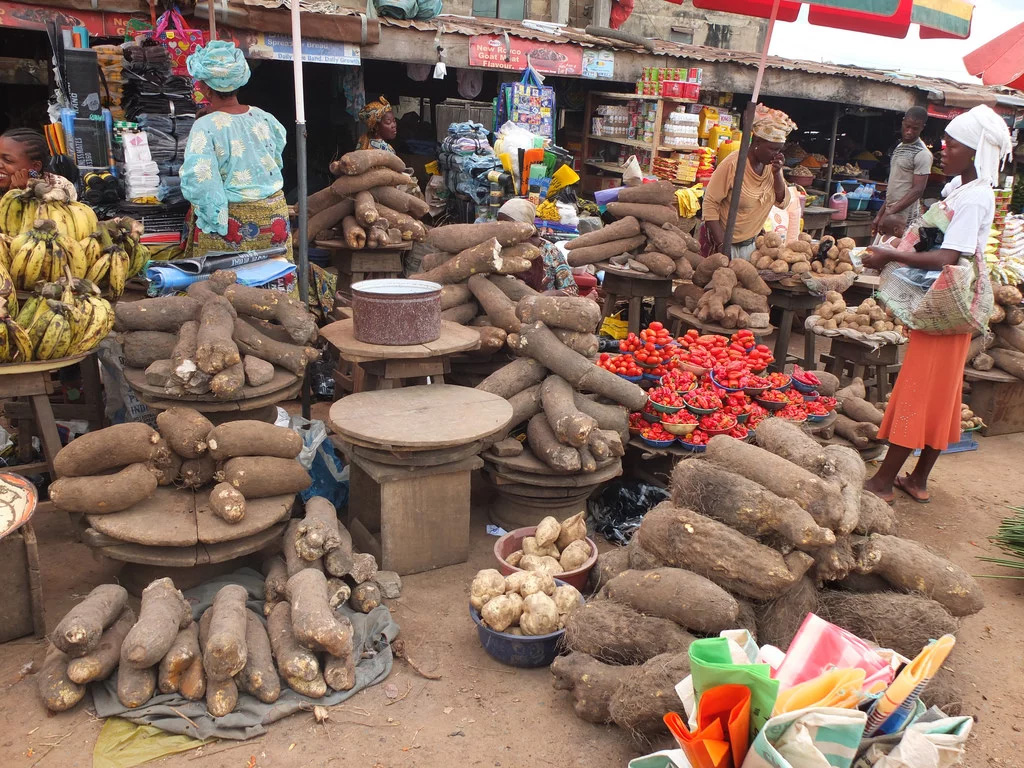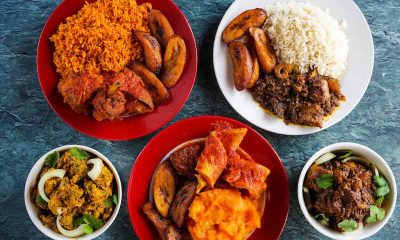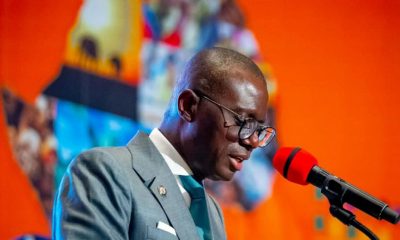metro
High food prices threaten households’ incomes • More families on the brink

Rising costs of food prices and essentials are increasingly reducing households’ disposable incomes and pushing more families to the brink of poverty.
Experts said insecurity and high energy prices have further widened the fault lines and limited the ability of the country to bridge its huge food demand with domestic supply. With the global food crisis being fuelled by the Russia-Ukraine escalation, Nigeria’s food insecurity could worsen without urgent measures.
Managing Director, Financial Derivatives Company Limited, Bismarck Rewane, said Nigerians spend 57 per cent of their income on food alone, adding that domestic food prices remain high and the global food price index hit record high last month. He said growing food prices could push an additional six million people into poverty.
“An acute lack of funding and credit, limited access to markets, lack of access to information, low use of mechanisation, transportation and logistics to smallholder farmers are the main challenges facing the agricultural industry,” Rewane said.
The economist explained that flour and diesel, which are the major costs components in the baking of bread, accounts for 70 per cent and 15 per cent of the total costs.
“This is likely to push upwards the price of a loaf of bread from N800 two months ago to N900. In spite of the price surge, wages have remained static or even declined in real terms. Consequently, price resistance of consumers is increasing and many are switching to affordable substitutes. In some cases, as is empirically evident, we have noticed a drop in the quantity of goods demanded. Since price inflation is not a Nigeria-specific phenomenon, there are indications that the price spiral is not likely to be short-lived,” Rewane said.
READ ALSO:
- Man, 5 relatives die after traditional marriage in Enugu community
- It’s crime to enrol your kids in private schools, Akeredolu warns teachers
- NDDC: Don’t set N-Delta on fire, S-South elders warn Malami
He explained that while an increase in interest rate is intended to reduce market liquidity and taper inflationary pressure, Nigeria’s inflation stoking factors appear to be more structural and cost-push.
“Monetary policies are usually less effective in addressing supply-induced inflationary pressure. Hence, inflationary pressures could persist if monetary tightening is not complemented by structural reforms and fiscal policy responses.
“We expect consumer price inflation to remain elevated in the coming months due to the lingering economic shocks from the Russian-Ukraine war. This will be further compounded by currency pressures. While the Naira is expected to appreciate marginally in the short-term as party delegates continue to sell their spoils, it is likely to be short-lived as Nigeria continues to grapple with a drop in dollar inflows,” Rewane said.
Managing Director, Centre for the Promotion of private Enterprise (CPPE) Dr. Muda Yusuf, agreed that the soaring cost of energy had taken a toll on food prices. He explained that with the rising cost of diesel, which has increased by over 500 per cent, the cost of aviation fuel, which has gone up by another 400 per cent and the cost of gas, which has increased by over 100 per cent, food movement and other food logistics had been grossly impacted.
“The cost of transportation has reached unprecedented levels, especially the cost of haulage, because of the escalating cost of diesel. Costs of operation and production have gone up from between 30 and 100 per cent as a result of this and also the exchange rate crisis. So, the final consumers have to bear the brunt, unfortunately,” Yusuf said.
“It is on record that bandits and terrorists have kept farmers at home and, in some cases, said to be collecting rents from farmers to allow them farm.
“This has continued to negatively impact capacity utilisation, turnover, cost of production and the value delivery to shareholders. Some source raw materials from neighbouring West African countries as they cannot get same here due to the insecurity issues which has prevented farmers to be on their farms,” Yusuf said.
READ ALSO:
- Shelling near Ukraine nuclear plant fuels disaster fears; Russia pounds Donbas
- TASUED Suspends HOD Wanted By ICPC Over Sex-For-Marks
- Man arraigned for punching LASTMAwoman, touching breast
Chairman, All Farmers Association of Nigeria (AFAN), Lagos State Branch, Otunba Femi Oke, warned that a 100 kg bag price of beans could sell for more than N100,000 from October, if farmers are not allowed to establish vigilante groups to protect their farmland.
He urged the government to confront the impact of the current security crisis on strategic food commodities.
Aside from Boko Haram insurgency crisis, he noted that banditry across farmlands has taken a toll on sector, driving farmers away from cultivating crops and putting a strain on food production.
Oke warned that insecurity was going to drive an acute rise in food prices with the gruesome activities of kidnappers and bandits displacing farming communities and limiting agricultural production. He expressed concerns that banditry threat has caused several farmers to flee the tense states such as Adamawa, Borno and Yobe, deserted their farmlands where beans and other food items are cultivated escaped for safety.
Experts maintained that supply chains for food raw materials imports into Africa continue to be impacted by Russia’s war in Ukraine, so competition for alternative resources among local producers remains high.
Data from the Nigeria Bureau of Statistics (NBS) showed that food prices in the country were 22.02 percent higher in July than same month last year. Items most responsible for this food inflation were bread, cereals, tubers, meat, fish, oil, and fat, the NBS noted.
The price of flour and diesel spiked by 76.7 per cent and 209.37 per cent to N26,500/ bag and N750/ litre respectively between last year and now. Prices of wheat, which is a major input for the production of bread, spaghetti, noodles, macaroni and many others, have risen astronomically. The product, which, last year, sold for between N25, 000 and N26, 000 per 100kg, now goes for as much as N39, 000 to N40, 000, depending on the market.
Accordingly, prices of food products which have wheat as major ingredient particularly bread have soared compared to their prices before the outbreak of the war. For instance, bread has suddenly become luxury, and is fast disappearing from the menu table of most Nigerians due to increase in its prices.
For instance, a medium loaf of bread costs between N600 and 700, up from about N400 to N450. A big loaf of bread that can barely feed a family of three now costs as high as between N800 and N1, 000, depending on the brand. Similarly, macaroni, which sold for about N3, 200 last year, is now sold for N4, 800. Also, from about N2, 900 to N3, 000, last year, noodles now go for N4, 050 to N4, 200.
Further data from www.statista.com showed that food prices in Nigeria increased considerably last April when compared to April last year. It noted that Tomato, groundnut oil, and palm oil prices increased the most. In particular, the price of a kilogram of tomato grew by over 53 percent compared to the previous year, while the price of vegetable oil rose by 46 percent. Among all selected food products, none of the selected foods recorded a decrease in price. In fact, Nigeria, the research firm said, is among the countries with the highest inflation rates in the world and has recorded a fast growing Consumer Price Index (CPI).
READ ALSO:
- Kaduna School Graduates 82 Qur’an Memorisers
- 10 states in Nigeria have higher GDP than some African countries – Osinbajo
- NDLEA foils attempt to export tramadol, arrests 8
A report conducted primarily by United Nations Food and Agriculture Organisation (FAO) and the World Food Programme (WFP), underlined that food insecurity in parts of Nigeria has reached “catastrophic” levels.
According to the report, 19.5 million Nigerians are “facing high levels of acute food insecurity”, including 1.2 million in an emergency, if humanitarian interventions are not scaled up and sustained. The situation remains worrisome, as over 1.7 million children under five years of age are expected to suffer from acute malnutrition through to August 2022 – a 34 per cent increase compared to the same period in 2021.
A critical highlight in the report showed that high prices of fuel and inputs, coupled with the high likelihood of poor rains in the southern and middle belt regions of the country, weigh on production prospects of the ongoing 2022 main agricultural season, raising concerns about access to food for vulnerable households.
Reflecting the high numbers of food insecurity, the report noted that the situation remains extremely concerning in the conflict-affected areas of northern Nigeria, where insecurity and access challenges are likely to persist.
The FAO and WFP report further identified the “continuing currency weakness, above-average inflation and a growing fiscal deficit in 2022, amid increasing costs of imported foods, including wheat, are likely to add pressure to prices in the outlook period.” It also pointed out that prices of local cereals in early 2022 were up to 25 per cent higher year-on-year and well above the five-year average.
A report by Quartz blames the high rise in food prices in the country on the knock-on effects of previous government policies like the two-year closure of land borders.
FAO and the WFP urged the government to distribute home-gardening inputs to IDPs and host populations to allow for the diversification of diets.
Among other things, the FAO and WFP also recommended that the government support agricultural-based livelihoods activities for the upcoming cassava, rice, maise and millet planting season starting, targeting vulnerable households with access to land for cultivation.
Oke proffered that a guarantee of security for the affected populations would encourage them to return to farm to continue food production.
The Nation
metro
Lagos govt insists nightclubs, worship centres must obtain permit for amplified sound

Lagos govt insists nightclubs, worship centres must obtain permit for amplified sound
The Lagos State Government has rolled out stricter measures to combat noise pollution, requiring nightclubs, lounges, bars, and worship centres to obtain permits for events involving amplified sound.
The measure, it said, aimed to safeguard the health and well-being of Lagosians during the festive season and beyond.
Lagos State Commissioner for Environment and Water Resources, Tokunbo Wahab, announced this via his official X (formerly Twitter) account on Saturday, emphasizing the government’s zero-tolerance stance on noise pollution.
Wahab highlighted that events with amplified sound must be conducted in soundproofed, enclosed spaces to protect residents from the harmful effects of excessive noise.
READ ALSO:
- Alleged missing N180m: It’s a prank, Singer Dammy Krane says
- Inter Milan crush Cagliari 3-0 to top Serie A
- Kemi Badenoch political career may be in danger – Top diplomat
“Establishments such as worship centers, nightclubs, lounges, and bars must now obtain permits for events involving amplified sound and ensure these activities take place in soundproofed, enclosed spaces to protect neighboring residents,” the statement read in part.
To enforce these directives, the government said it had established a Special Task Force on Noise Pollution under the Lagos State Environmental Protection Agency (LASEPA).
This task force, in collaboration with the Lagos State Neighborhood Safety Corps (LSNSC) and the Lagos State Environmental Sanitation Corps (LAGESC), would oversee compliance, arrest offenders, and prosecute violators of noise regulations, it stated.
The statement further noted that starting January 2025, the government would roll out a public awareness campaign to educate Lagosians on acceptable noise levels and the benefits of a quieter environment.
Lagos govt insists nightclubs, worship centres must obtain permit for amplified sound
metro
Alleged missing N180m: It’s a prank, Singer Dammy Krane says

Alleged missing N180m: It’s a prank, Singer Dammy Krane says
Singer, Dammy Krane has stated that social critic, Very Dark Man, is joking with claims that N180 million was diverted from the NGO account he created in October this year.
VDM shocked Nigerians on Friday, December 27 when he released a video claiming hackers had breached his NGO website and moved N180m leaving only N20 million.
The news shocked many Nigerians who took to social media to slam him.
READ ALSO:
- Inter Milan crush Cagliari 3-0 to top Serie A
- Kemi Badenoch political career may be in danger – Top diplomat
- Oluwo backs push for Sharia law in South-West
However, in a post shared on his Instagram page this evening, Dammy Krane claimed that VDM is renovating a school in Jos, and was only joking with the story of stolen funds.
Also, a Human Rights activist, Omotayo Williams, claimed the man VDM showed in his video as an officer accompanying him to Jos is a well-known member of the Kogi State Taxi Taskforce.

Alleged missing N180m: It’s a prank, Singer Dammy Krane says
metro
Oluwo backs push for Sharia law in South-West

Oluwo backs push for Sharia law in South-West
The Oluwo of Iwo, Oba Abdulrasheed Akanbi, has expressed support for the proposed implementation of Sharia law in the South-West, emphasizing its historical presence in Yoruba culture.
Oba Akanbi noted that Sharia principles have long been part of Yoruba land, citing examples such as Sharia banking and the existence of a Sharia college in Iwo, Osun State.
He stated, “Sharia law has been in Iwo for over 100 years… It’s the right of Muslims to choose customary law or the high court.”
Recall that the discussion around Sharia law gained traction after plans were announced for the inauguration of a Sharia council on January 11, 2025, at the Muslim Community Islamic Centre in Oyo. However, the event has been postponed indefinitely following widespread public criticism.
READ ALSO:
- Niger: DSS officers kill three notorious bandits, recover arms, motorbikes
- Shettima admits killing of civilians in Sokoto airstrikes, tenders apology
- Tinubu not telling Nigerians the truth, says Sule Lamido
Critics have argued that the Yoruba-dominated South-West, where Muslims and Christians coexist, is distinct from the predominantly Muslim northern region where Sharia is more widely practiced.
Addressing concerns, Oba Akanbi explained that Sharia law is already embedded in Nigeria’s constitution and should not cause alarm for non-Muslims.
“Sharia law is only for Muslims and does not concern others. If any other person likes it, they can convert to Islam, and Muslims can also convert to Christianity. Everyone is free,” he said.
The monarch also drew attention to the challenges faced by Muslims under existing laws, particularly in matters such as inheritance and divorce, where Western legal frameworks may not align with Islamic traditions. “Many Muslims feel disenfranchised… Western education doesn’t understand the ways of Muslim divorce, marriage, and inheritance,” he added.
Oba Akanbi emphasized that Sharia law represents the inalienable rights of Muslims and should not be viewed as a threat to other religions. “No government can deny Muslims their inalienable rights,” he concluded.
Oluwo backs push for Sharia law in South-West
(PUNCH)
-

 Business3 days ago
Business3 days agoBe creative, monarch, others challenge Muslim professionals on economic revival
-

 Auto2 days ago
Auto2 days agoLSM MD extols founder’s qualities after latter posthumous industry award
-

 Entertainment2 days ago
Entertainment2 days agoMultiChoice announces free access to all DSTV channels for 3 days
-

 metro3 days ago
metro3 days agoJigawa State governor loses son 24 hours after mother’s death
-

 News2 days ago
News2 days agoNigeria Customs Service begins 2025 recruitment [How to apply]
-

 metro2 days ago
metro2 days agoHeavy security in Ilesa as ex-Osun deputy gov emerges new Owa-Obokun
-

 metro2 days ago
metro2 days agoLagos Imam to Tinubu: You haven’t disappointed us
-

 metro2 days ago
metro2 days agoDangote, Tinubu, Lookman named among 100 most influential Africans in 2024 (Full list)







